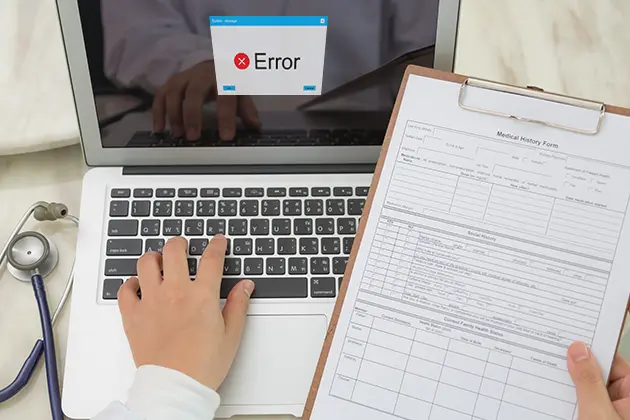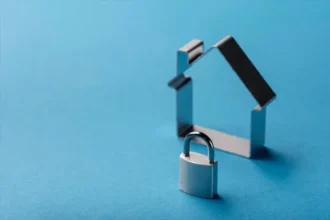Medical billing is a complex process with many high risk of mistakes that can lead to denied claims and lost revenue. As the healthcare industry relies more on various electronic platforms and remote work, medical billers need to be extra diligent to avoid these common errors.
1. Inaccurate Coding
Using inaccurate diagnostic and procedure codes is one of the main reasons insurance claims get denied. Common coding mistakes include:
Choosing the Wrong Codes
Medical billers must choose codes that precisely match the treatment, diagnosis, and complexity documented in the medical record. Even small errors can trigger claim denials in medical billing when the payer investigates.
Upcoding Services
Trying to get higher reimbursement by billing for more complex or expensive services than were actually delivered leads to fraud allegations and claim denials.
Downcoding Complex Cases
Under-coding complex cases can also lead to problems if key complications aren’t captured in the codes. This can lead to lower reimbursements.
Missing Modifiers
Modifiers provide extra detail about the case complexity, underlying conditions, or other factors. Forgetting these can make coded services appear inappropriate.
To prevent coding errors, billers need an excellent understanding of medical terminology, coding rules, and payer guidelines.
2. Errors in Patient Details or Policy Numbers
If patient details like names, birthdates or policy numbers don’t match exactly what the payer’s data, the claim will be denied. Pay close attention when entering:
- Patient name – Verify spelling and suffix
- Date of birth
- Gender
- Insurance member ID
3. Missing Authorizations
Most insurance companies require prior authorization for expensive tests, elective procedures, durable medical equipment, and other services. If the administrative staff forgets this step, the claim will be denied.
Billers have to make sure that authorizations are obtained prior to providing services. Additionally, confirm that authorizations have not expired between the approval and delivery of the treatment.
4. Late Billing
Insurance companies set restrictions on when after a service has taken place, and the provider can still file for a claim.
Not meeting these administrative time limits is one of the reasons why claims are turned down. Carefully check the deadlines for each payer
In order to avoid late submissions, consider automated claim submission modules that can alert you on submission deadlines.
5. Incorrect Forms Submitted
Different payers require claims to be submitted on specific forms, which are updated periodically. Sending information on outdated forms often leads to denial.
Common claim form errors include:
- Using old CMS-1500 for professional services instead of the updated 02/12 version
- Submitting institutional services on a UB-92 instead of a UB-04
- Failing to include specialized state forms required by some Medicaid programs
Staying on top of payer form requirements takes continual vigilance, as policies are subject to change.
6. Missing MedicalDocumentation
According to KFF’s reseach, within the restricted scope of Healthcare.gov, insurers deny nearly one in five claims on average. One of the common reasons may be that the initial application does not contain proper supporting documents. Medical records, referral forms, treatment plans, and other paperwork are required.
Extra documentation needs arise when billing for:
- Durable medical equipment – physician letter justifying medical need
- Orthodontia – treatment plan detailing full case scope
- Therapy – plan of care signed by a physician
- Cosmetic procedures – clinical reason services are medically necessary
Having processes to compile all needed documentation before claims go out reduces such kind of denials.
7. Errors in Referral Paperwork
Specialist services often require a referral from primary care along with claim submission. Typical referral issues include:
- No referral on file
- The referral expired before services were delivered
- The referral doesn’t cover treatment billed for
- Wrong ordering physician listed for referral
Care coordination staff must obtain necessary referrals before appointments happen and verify that details match at the time of billing.
8. Billing for Non-Covered Services
Providers occasionally bill for services that are not covered by insurance due to lapses in verifying insurance coverage or missing updates in coverage policies.
It is crucial to check insurance coverage regularly and payer medical necessity to identify potential non-covered items that may be denied. Implementing effective medical billing solutions can help to streamline the process and reduce errors.
9. No Signature on File for Credit Card on File Payments
Many providers now keep credit cards on file to collect patient responsibility payments. However, payment can still be denied if proper cardholder authorization isn’t captured upfront.
Key elements for valid signature on file include:
- Cardholder name matching account
- Expiration date
- Last 4 digits of card
- Signature and date
- Clear payment terms – when and how much will be charged
10. Submitting on Paper When Electronic Billing Expected
As healthcare goes digital, more payers require electronic claim submission through HIPAA-compliant 837 transactions or via web portals. They may reject paper claims even if all information is complete and accurate.
Billers unaware of electronic submission rules may still rely on paper claims and encounter repeated denials. This delays reimbursement and requires additional follow-up.
Conclusion
Accurate and timely claim submission prevents reimbursement issues and extra administrative costs that go into appealing and refiling denied claims.
Investing in professional medical billing staff, rigorous processes, and compliance-focused software/technology reduces costly errors like these before they happen.
Staying up-to-date on changing requirements also minimizes denial triggers as healthcare continues evolving. Paying attention to details provides the best defense against the top ten medical claim submission mistakes covered here.










